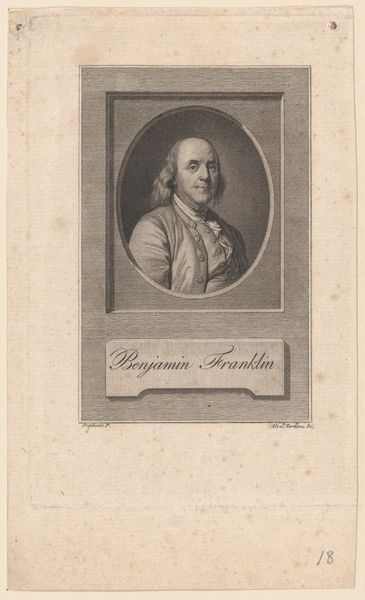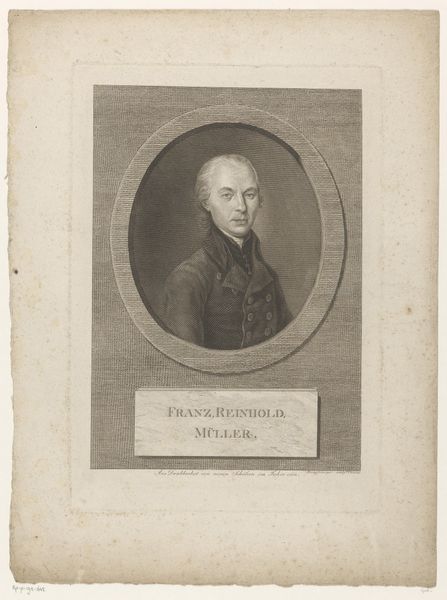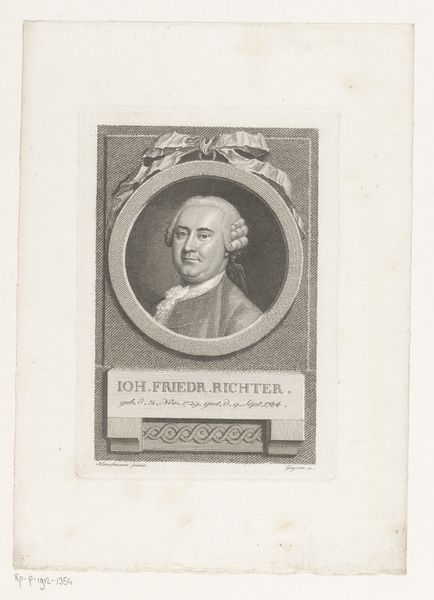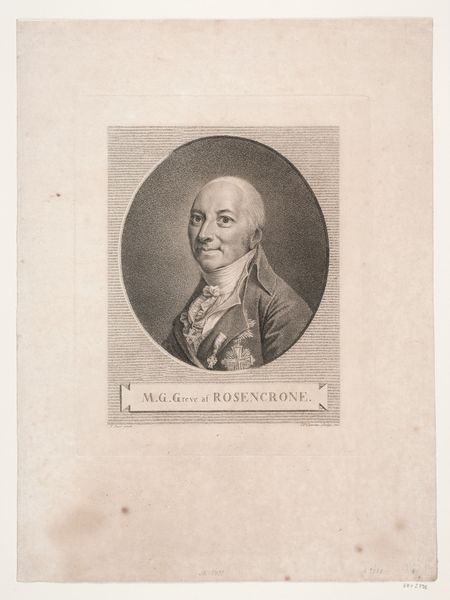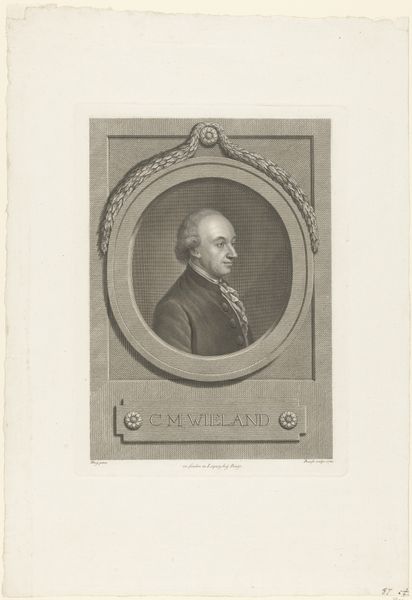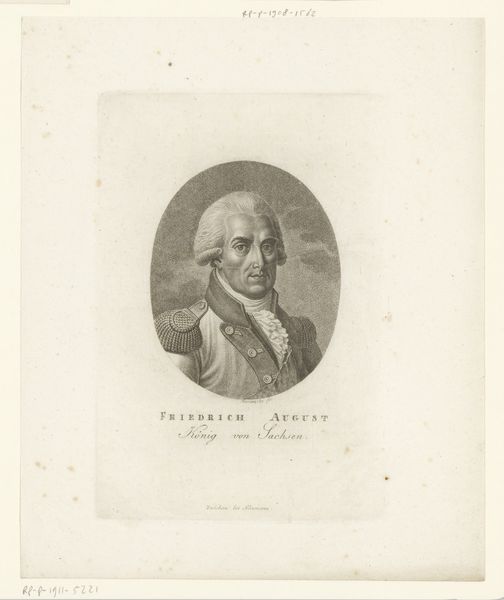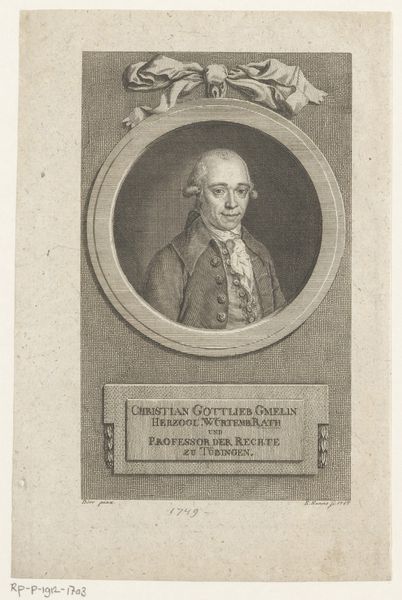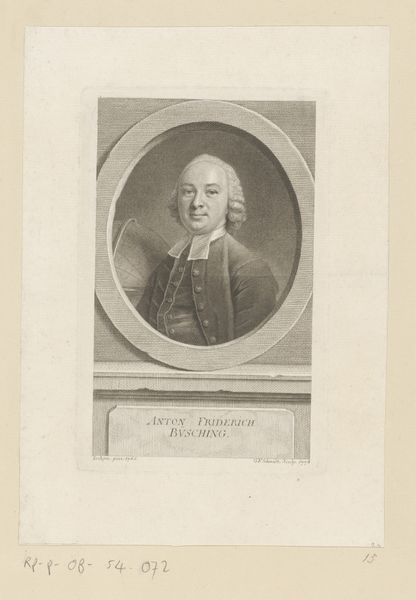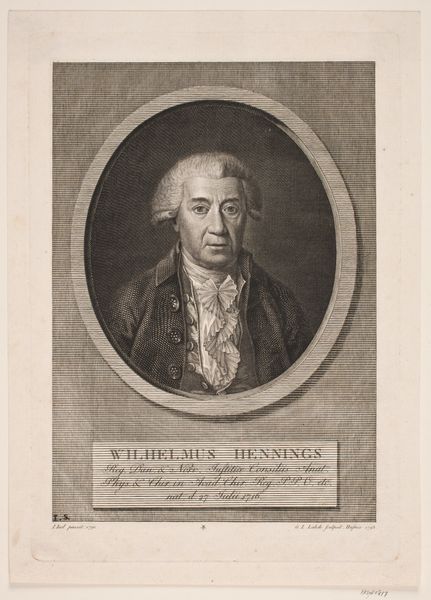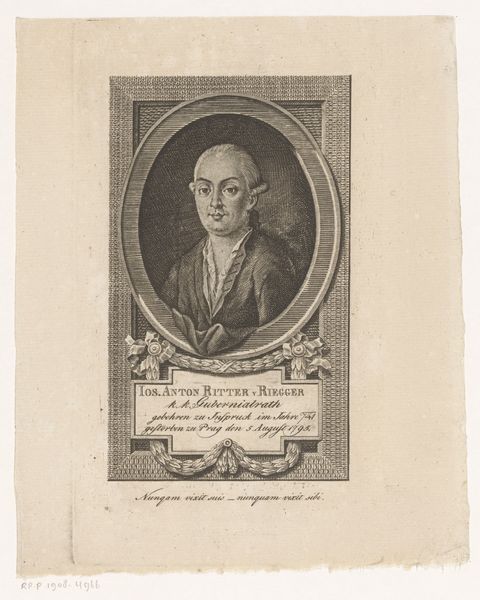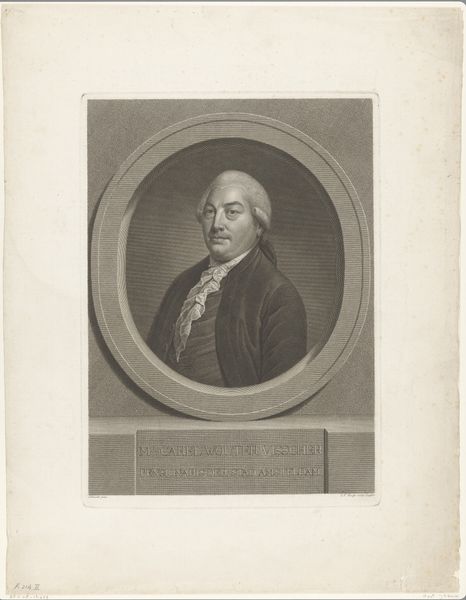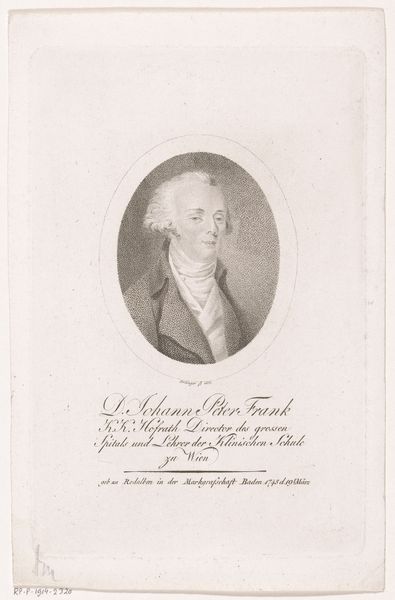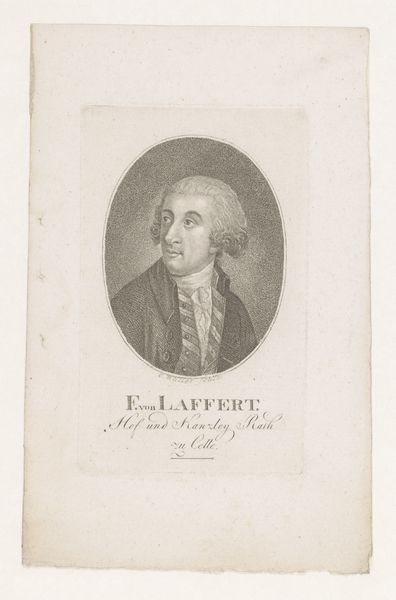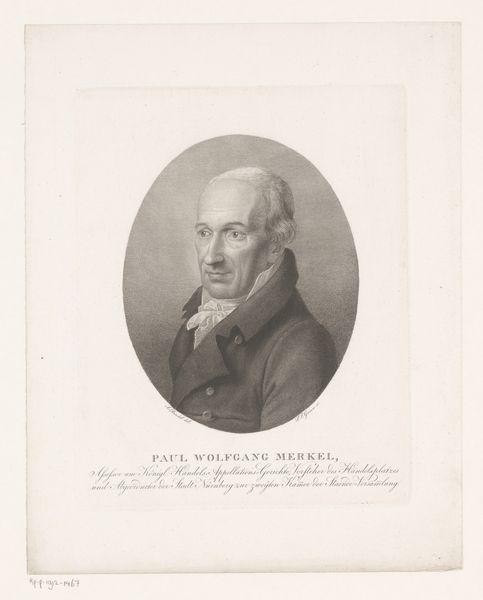
engraving
#
portrait
#
neoclacissism
#
old engraving style
#
form
#
line
#
academic-art
#
engraving
#
realism
Dimensions: height 250 mm, width 202 mm
Copyright: Rijks Museum: Open Domain
Johann Carl Bock etched this portrait of Christian Friedrich Pfeffel von Kriegelstein, likely in the late 18th or early 19th century. Encircling Pfeffel is an oval frame bearing the inscription ‘IAM PAVOR IDVAE TERRENT RVINA.’ The oval, a shape echoing the cosmic egg, symbolizes potential and rebirth. Here, it frames Pfeffel, suggesting his place within a cycle of history and renewal. Such framing devices hearken back to ancient Roman portraiture, where busts of ancestors were revered, embodying the continuity of family and state. Consider how portraiture evolves: from idealized Roman sculptures to the individualized likenesses of the Renaissance, and now, to Bock’s Pfeffel. Each era reshapes the portrait to reflect its values, yet the primal impulse to preserve and honor remains. This impulse, deeply rooted in our collective psyche, speaks to our yearning for immortality. Even the most rational minds are subconsciously engaged by this interplay of memory and aspiration.
Comments
No comments
Be the first to comment and join the conversation on the ultimate creative platform.
